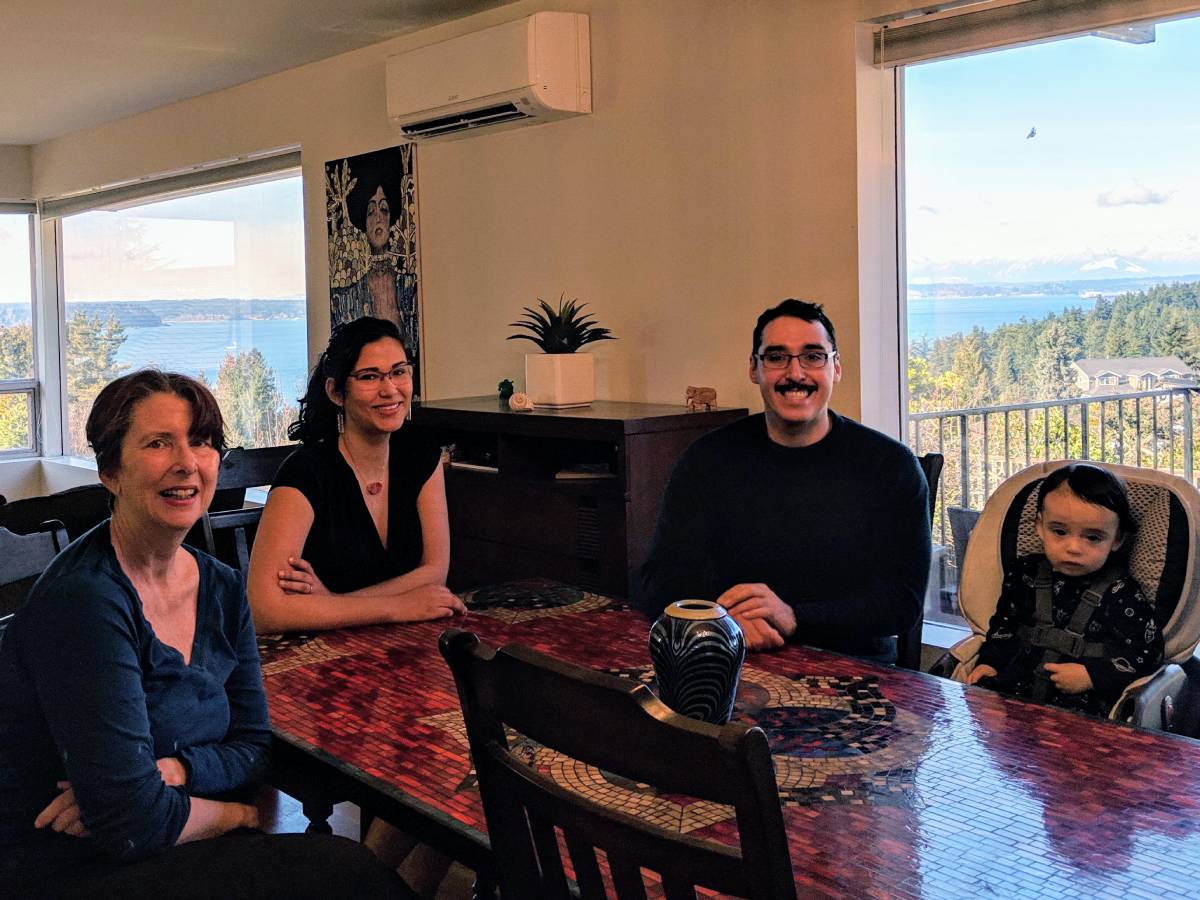How to Buy Your First Home Like an Economist
7 tips and takeaways from Redfin Chief Economist Daryl Fairweather.
Buying a first home is exciting–and completely overwhelming. It’s loaded with questions and pain points–even for those who make it their job to know about the real estate market.
When Redfin chief economist Daryl Fairweather bought her first home, she had just completed a Ph.D. in economics.
“I was 27-years-old and renting an apartment with my husband in San Diego. My mom owned a condo nearby, but for health reasons, it became obvious she shouldn’t live alone. We decided to sell her condo and use the money from that sale as a down payment on a home where we could all live,” she said. “I didn’t have any experience navigating the process, but was able to rely on my knowledge of economics to make key decisions along the way,” she said.
Personal changes such as Daryl’s can often inspire that initial home purchase, whether for a new job, baby, or other life change.
“Most people’s reasons for buying or renting come down to personal circumstance and preference. Mine were; I needed a space big enough to accomodate me and my husband, my mom, her two dogs, and our dog, so renting was pretty much out of the question,” she said. “I had the money for a down payment, which for most people is the biggest hurdle to overcome. In retrospect, I should have thought harder about whether I was going to stay in San Diego long-term. I ended up moving to Seattle to work at Amazon after only one year.”
Since then, Daryl has bought and sold a home an additional time, and gleaned some key takeaways. Here’s how to buy a home like an economist, whether it’s the first or fourth time.

When you start your home search, know what you want–and what you don’t
“My family and I spent about three months looking for a home. We put together a list of must-haves for our agent: within a 30 minute commute to work, a private space for my mom with her own bathroom, room for future kids, a yard for dogs. We also made a list of nice-to-haves: large kitchen, walkable neighborhood, high quality schools. We also made a list of things we didn’t want: a pool, traffic noise, a homeowner’s association.”
Don’t ignore red flags and think about resale value
“I found a home on Redfin I really liked. It was walking distance from work, with everything we wanted, but it had been sitting on the market for nearly a year, which was a red flag. The home was quirky, but none of the quirks bothered us. It was across the street from a strip mall and it had a strange layout. Even though I liked the home, I didn’t want to end up paying more than what other buyers would think it was worth.
That calculation makes home buying trickier than other financial decisions. When I was renting, I only ever thought about whether my rent seemed reasonable, and I didn’t have to think about what future renters would be willing to pay. That was my landlord’s problem. But when buying a home, I did worry about resale value. I knew there was a chance I might not stay in the home long-term, and I didn’t want to pay more than what I could resell it for. So, we put in a low-ball offer of 15 percent below asking, which the seller unsurprisingly rejected. That house sold two months later for 7 percent below asking. So, we were correct that the list price was too high.”
Look at local data to avoid a bidding war
“Several weeks later, we found another home that checked all of our boxes. It was a tract home, meaning there were lots of nearly identical homes in the neighborhood. That made me feel confident about not overpaying because there was plenty of data on recent sales of similar homes, which made it easy to assess this home’s value.
The home went on the market on a Wednesday. We took a tour that Thursday, and decided to put in an offer immediately. I wanted the seller to accept our offer before an open house to avoid a bidding war. In spring of 2016 in San Diego, my chances of facing one were about two in three. Based on what I learned from behavioral economics, I knew getting into a bidding war could be dangerous because I might get swept up in the desire to win, and end up paying more than I should. My graduate courses in game theory taught me to use backwards induction (reasoning backwards in time) to deduce the lowest offer the sellers would accept. I put myself in the sellers’ shoes and I figured they wouldn’t accept an offer below list price before holding an open house, but they would accept an offer at list price. Given the competitiveness of the market, the sellers probably thought there was a good chance they would receive one or more offers at or above list price over the weekend, but there was also a small chance they could receive zero offers. I also thought the list price was fair based on all of the data on recently sold homes in the neighborhood.”
Set your offer terms carefully
“As soon as we decided to put in an offer, we had to determine the terms of the offer. We decided on a one-month escrow, which was timed to the end of our apartment lease. Our offer included a standard financing contingency and inspection contingency. This isn’t always possible however. A year later, we moved to Seattle and again tried to buy a home. At that time, we had to waive financing and inspection contingencies in order to have our offer accepted. The Seattle housing market was red-hot at the time, and buyers had very little negotiating power. Decisions should be made to reflect the current market.”
Don’t forget to ask for concessions
“Even after you have an offer accepted, the negotiation process isn’t over. Once you have the inspection report you have the opportunity to ask for concessions. At this point, the buyer can back out for any reason. For example, after our inspection, we asked for nearly $3,000 to cover the costs of minor repairs. The seller offered to make some of the repairs, and we settled on a credit of about $1,500.”
Negotiate, negotiate, negotiate
“The biggest takeaway I learned is you can’t be afraid to negotiate. I had plenty of academic experience studying economics and game theory, but I didn’t have practical experience in negotiating. I’ve only ever haggled on vacation in foreign countries. After buying my first home, I became much more comfortable talking about money, standing up for myself, and securing a better deal.”
The post How to Buy Your First Home Like an Economist appeared first on Redfin Real-Time.



